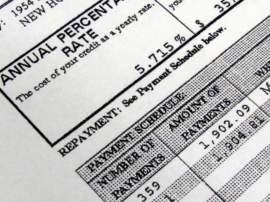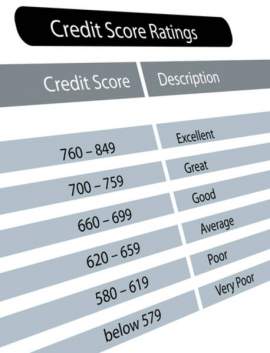
A Guide to Low Interest Credit Cards

What are Low
Interest Credit Cards?
Low Interest Credit Cards are classified as such
due to the fact that interest rates – as well as their respective Annual
Percentage Rate (APR) – are considered to be amongst the lowest in the spectrum
of the vast expanse of credit cards. Interest is defined as an expressed and
established percentage of the gross balance of Credit Cards.
Interest is
considered to be a compensatory method undertaken by the credit institution as
a result of furnishing an individual with a credit card. Low Interest
Credit Cards are considered to be amongst the most valuable and coveted
financial instruments in existence within modernity. In most cases, the receipt
of Low Interest Credit Cards will be limited to those in possession of credit
scores and credit history considered to be ‘excellent’ or ‘very good’.
Standards and Practices of Credit Terms Specific
to Low Interest Credit Cards
The notion of Low Interest Credit Cards may exist
within the following 2 ideologies:
The first instance of Low Interest Credit Cards is
a temporary one. Many lending and credit institutions will allow individuals to
enjoy a finite period of time within which they may be eligible for the
receipt of low or non-existent interest rates (also called 0% APR). However,
this period of time is typically limited to a period ranging from 6 months to a
year.
The second instance exists on a permanent basis. Individuals
considered to possess excellent credit may be subject to receive the lowest
interest and APR rates.
Credit Score Analysis with regard to the
Application for Low Interest Credit Cards
Upon applying for a Low Interest Credit Card, both
the applicant’s credit score and credit rating will undergo analysis and
assessment from the applicable lending institution. The following may be
applicable to the approval process of a Low Interest Credit Card:
Credit Score of the Individual Applying for Low
Interest Credit Cards
Low Interest Credit Cards are typically reserved
for individuals with credit scores exceeding 720.
Low Interest Credit Card Interest and Annual
Percentage Rates
Both the interest rates and annual percentage
rates associated with Low Interest Credit Cards may vary. Interest rates
ranging from 2% to 5% are considered to be the most attractive.
Low Interest Credit Cards: Legality
Low Interest Credit Cards will typically fall
under the jurisdictions of both Finance Law and Commercial Law.
Finance Law is the legal specialty regulating and
overseeing legislation applicable to the exchange and the circulation of monies.
This takes place both in transfer activity undertaken involving hard currency,
as well as Low Interest Credit Cards. The precepts of Finance Law ensure that
all terms latent within Low Interest Credit Cards adhere to the Truth in
Lending Act, which ensures that the terms of all Low Interest Credit Cards are
expressed clearly upon applying for Low Interest Credit Cards.
Commercial Law is the legal field that enacts the
regulatory oversight of standards and practices occurring within the commercial
marketplace. With regard to Low Interest Credit Cards, statutory legislature
undertaken within the precepts of Commercial Law ensure the protection from and
prosecution of any nature of predatory lending or financial exploitation.
Contingency Plans in the Event of Rejected
Applications for Low Interest Credit Cards
In the event that your application for the receipt
of a Low Interest Credit Card has been rejected, additional options may exist
for your consideration. You are encouraged to investigate the following
options, which may provide assistance with regard to both the receipt of a
credit card in addition to measures undertaken in order to improve your
respective credit score:
In the event that an individual wishes to improve
their credit score, prompt repayment, responsible usage, and the compliance
with terms of service will typically result in increased credit limits and
raised credit scores.
Individuals interested in applying for credit
cards are encouraged to contact legal and financial professionals in order to
better understand both the risks and ramifications implicit within any nature
of credit cards.
NEXT: A Guide to Student Credit Cards





















